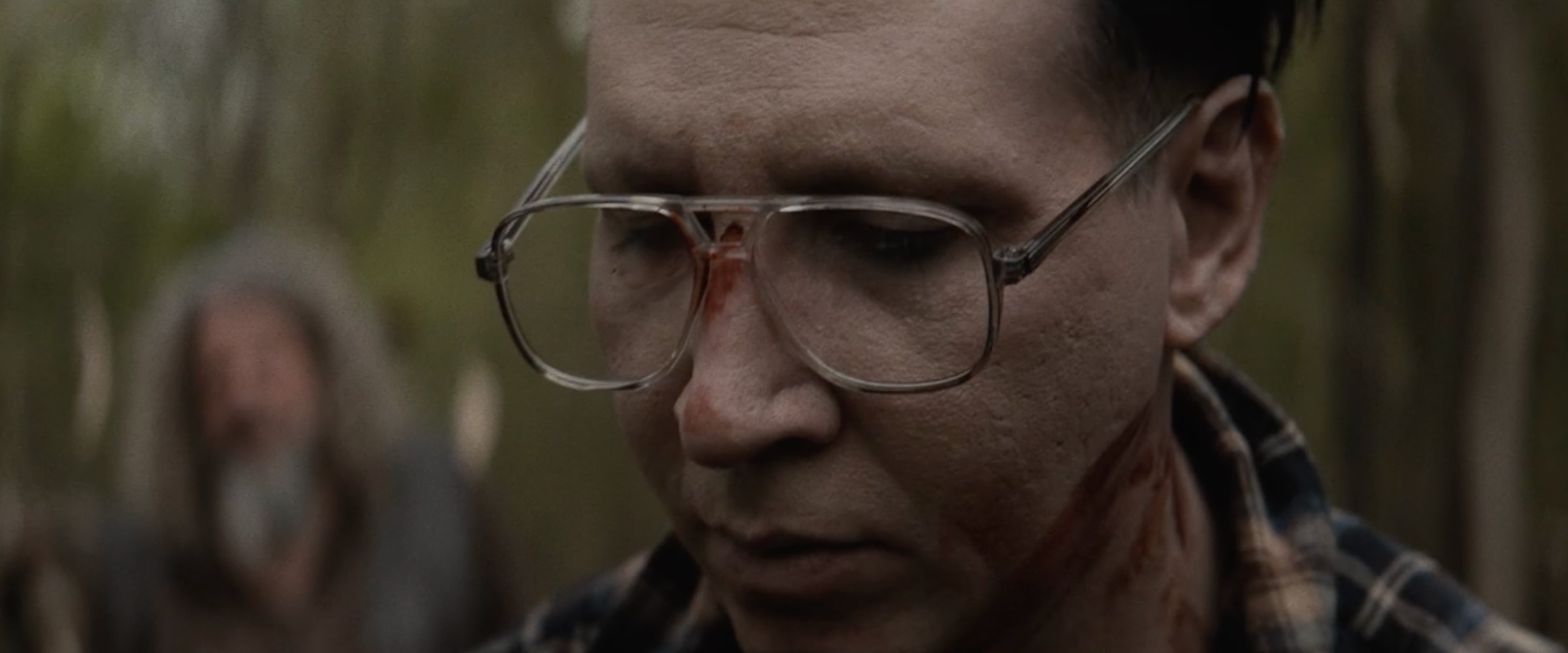Let Me Make You a Martyr is one of those films that arrives with so much sulfurous promise it almost dares you not to be excited. An indie southern-gothic revenge tale with Marilyn Manson putatively playing an assassination angel named Pope? That’s the kind of casting stroke that wakes up even the most jaded cinephile. On paper, it's a ready-made baroque: broken family loyalties, incestuous chemistry, violence steeped in religious delirium, Sons of Anarchy but with the lights turned down and the metaphysics dialed up.
But then the movie starts and instead of a bracing shot to the system, we’re served up a trickle, a film so convinced of its own mystery it forgets to actually tell a story. What’s left is a tangle of ellipses: scenes that hint at deep waters but seldom let you do more than squint into the murk. You’re reminded of those crime novels too in love with their own atmosphere to actually slip you the plot, only here, the humidity isn't even that thick.
Let’s rummage through the virtues before we drape the cold, wet sheet over everything else. Marilyn Manson, as if conjured from the depths of some midnight cartoonist’s subconscious, inhabits Pope with an unnerving stillness and a voice that seems to crawl up from the earth itself, throaty, low, almost reptilian. He’s mostly silent, those heavy-lidded eyes, made even more spectral by the utter lack of eyebrows. There’s nothing coy or ambiguous about what lies beneath; something malignant and unknowable pulses inside him, and the camera can’t quite look away. The effect is so palpable that everyone in the film regards him with open fear, and yet, the movie never bothers to let us in on just what nightmare stories trail in his wake. Pope comes shrouded in menace, all implication and threat, a figure so convincing in his dread that he hardly needs a backstory, except, frustratingly, we’re left to wish for one. Then there’s Niko Nicotera, turned loose from the ghetto of television supporting roles and finally allowed to brood and smolder on his own terms. His Drew Glass has a haunted, combustible intensity, even if the script leaves him stranded on the wrong side of too many cryptic stares.
It’s clear someone loved noir but confused convolution with complexity. The few moments where the film really feels lucid, a bit of fiery violence here, a sly exchange in a soy-lit diner there, are enough to tease you along, but every time narrative momentum tries to mount, it’s tripped by the next flashback or elliptical conversation that doesn’t so much reveal as obscure. By the end, when the film resolves with a dissociative whimper instead of a bang, the frustration isn’t so much with what happens, but with how little you’re allowed to care.
Let Me Make You a Martyr wants you to solve a puzzle, but the pieces have been left in someone else’s box. The experience is less like being beguiled and more like being scolded for not working hard enough to find meaning. The ultimate shame is that the cast, notably Manson, is game for something much weirder, more direct, and yes, shorter. This is a movie that aches to be a lean, nasty thing you devour in 85 minutes, not the fitful, drawn-out dirge we’re given.
I’m probably being too generous; Manson’s presence is that magnetic, when he’s onscreen, you almost believe the film might find its center. But like so many empty churches dotted across the South, you’re left gazing at the altar and wondering what strange ceremony you’ve just barely missed.
If martyrdom is a kind of suffering that brings transcendence, then by the end, the only martyrs are the audience, having suffered through confusion and tedium, and emerging with nothing to show for the pain but a shiver of squandered promise and a lingering image of Marilyn Manson, rewarding himself with a meal at the diner right after he set an old man on fire, waiting for a better script.


